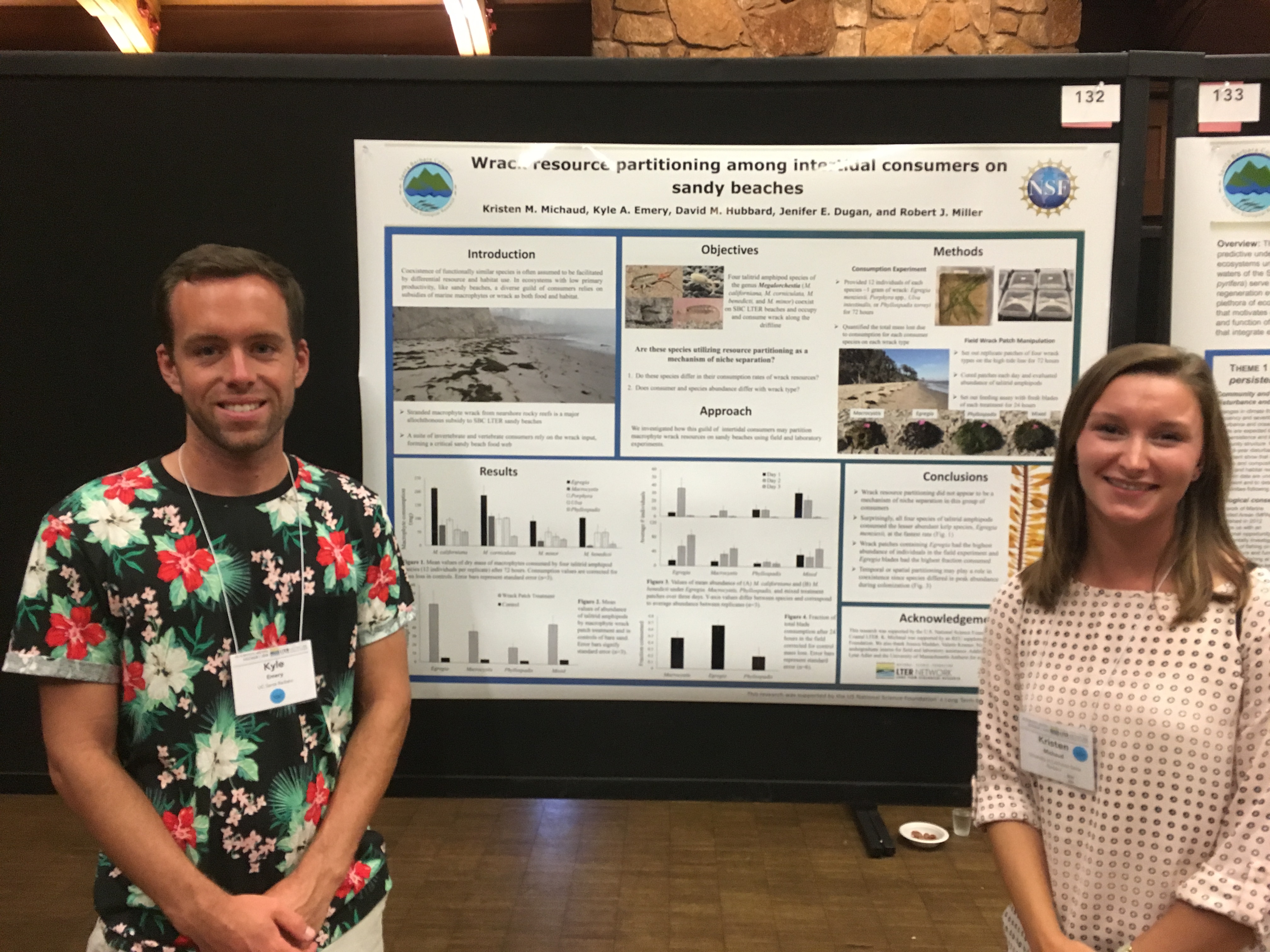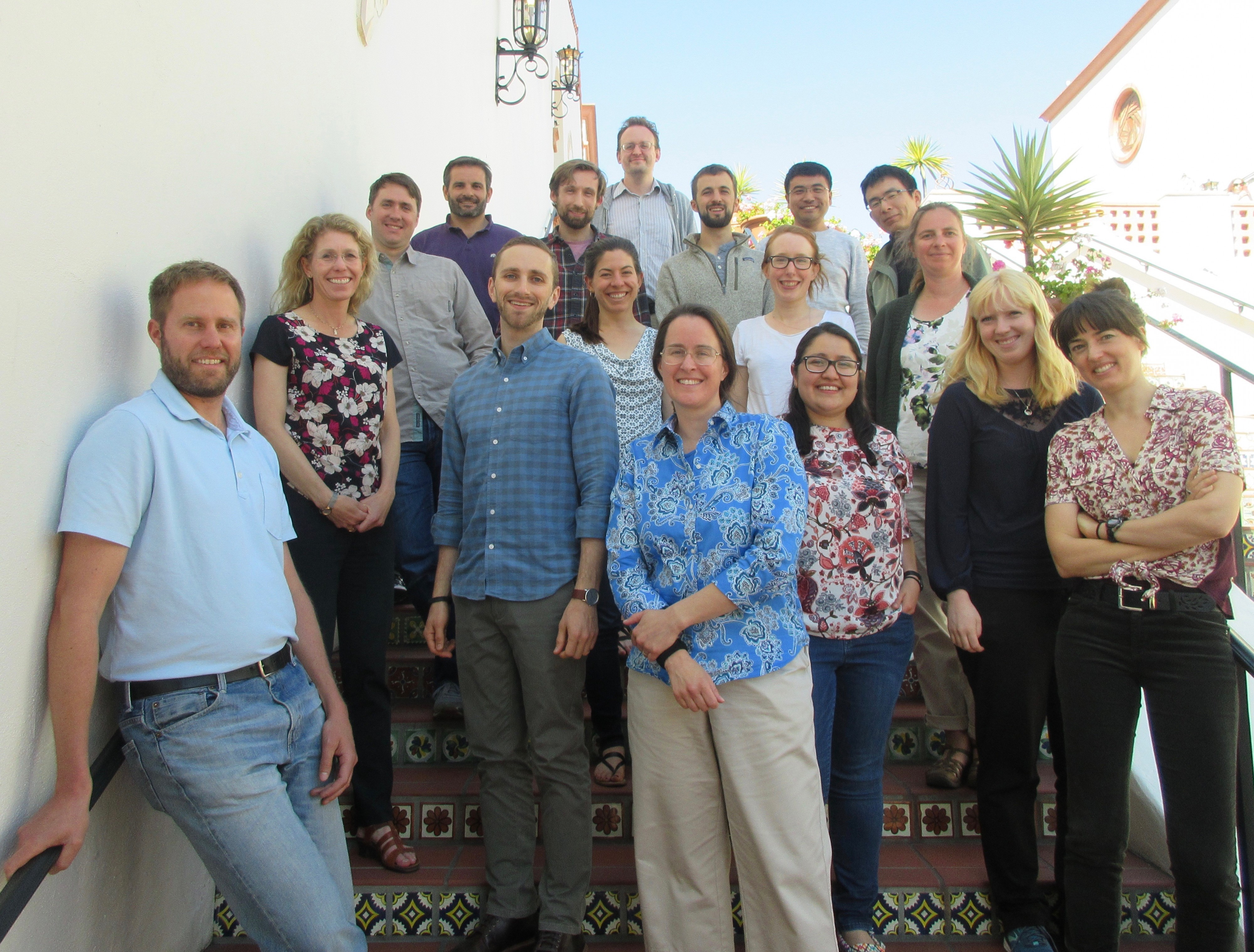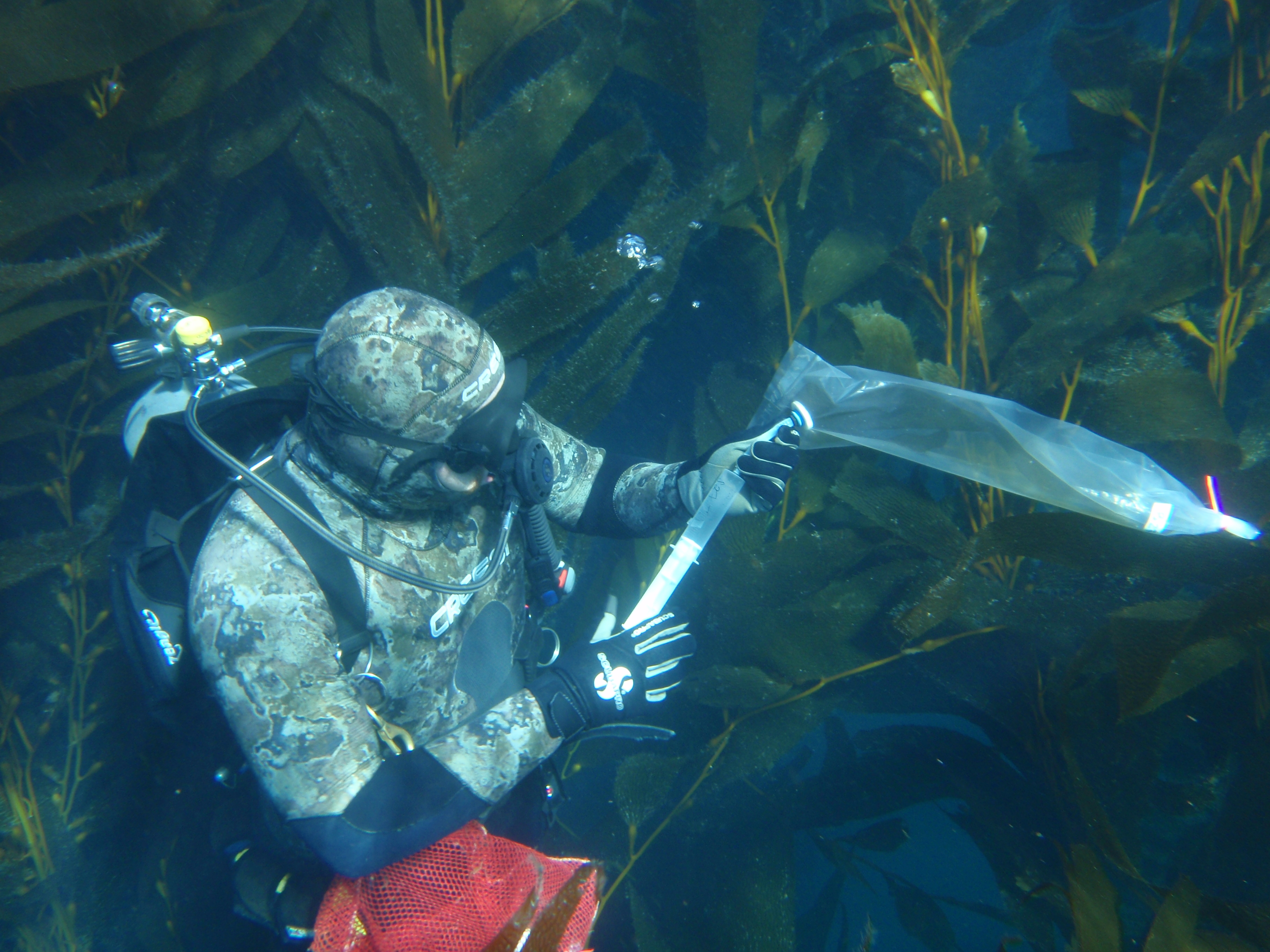Graduate Education and Postdoc Mentoring

SBC graduate student and postdoctoral training are coordinated with several graduate programs on the UCSB campus to enhance opportunities for interdisciplinary training in ecology, physiology, geology, geography, oceanography, and coastal policy. This enables valuable cross-training on environmental issues pertaining to coastal ecosystems, provides a common language for communicating scientific information on these issues, and contributes to the creation of a diverse scientific community of students and postdocs that fosters a respect and appreciation for other disciplines. Graduate seminars hosted by SBC faculty, the SBC Annual All Scientist Meeting and SBC workshops on key research themes serve to engage SBC graduate students and postdocs in the culture and diverse research offered by SBC. Graduate students working at the UCSB REEF are encouraged to develop content for K12 education and to support professional development opportunities for K12 teacher professional development.
The graduate students from the three Southern California LTER sites (SBC LTER plus Moorea Coral Reef LTER and California Current Ecosystem LTER) organize a cross-site LTER graduate student symposium bi-annually. LTER network working groups and the triannual LTER Network’s All Scientist Meeting engage SBC graduate students in the diverse research and career opportunities offered throughout the Network. Graduate students, postdocs and staff train undergraduate students as research and education assistants and mentor their research projects.
The focus of SBC’s mentoring and training of postdoctoral scientists is to provide them with strong interdisciplinary skills, professional development opportunities, and the experience and support required for them to transition to career faculty positions. In addition to the specific training associated with the SBC project, postdoctoral scientists are mentored through grant proposal development and writing and the job application and interview process by SBC investigators and have access to UCSB’s resources for postdoctoral scientists.

